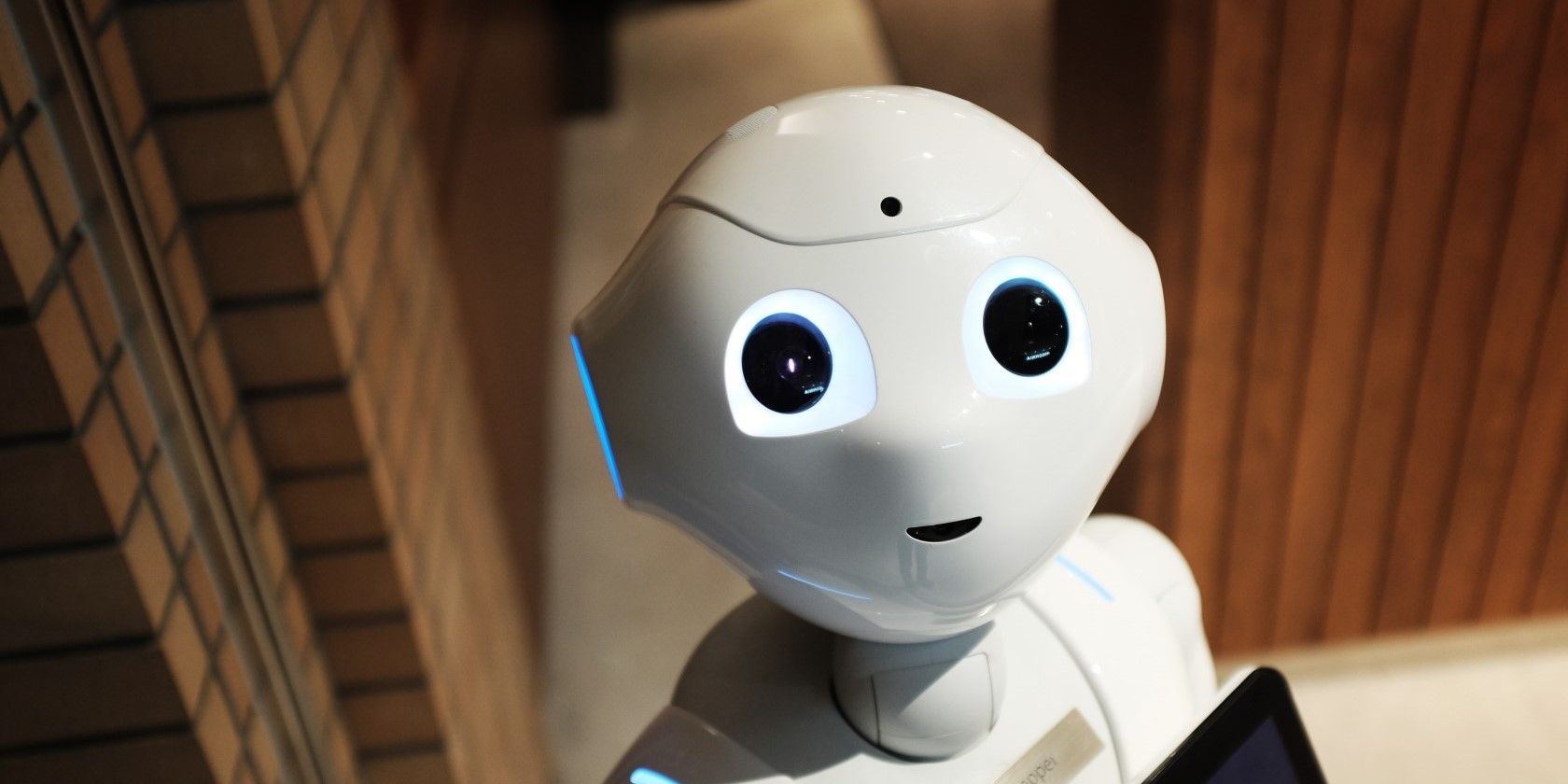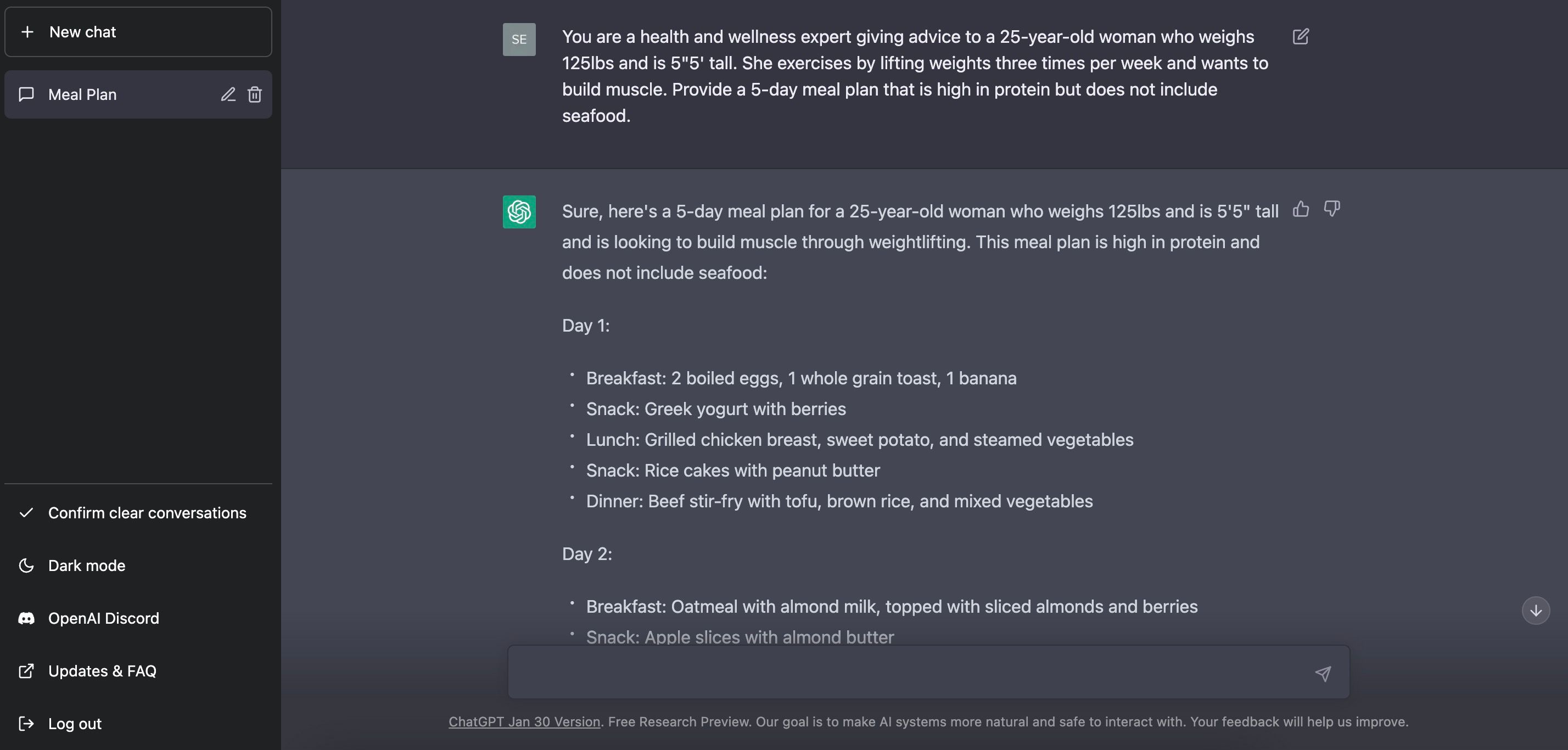You might have an app on your phone or smartwatch that can monitor bodily metrics, track workouts, or help you meditate. But have you considered using AI technology to help with your health and fitness journey?
ChatGPT is an AI language model that demonstrates the quickly growing popularity and accessibility of AI tools. However, can you trust this advanced technology when it comes to health and fitness information? It may be good at mimicking human writing, but there are some caveats you should be aware of before you start relying on it for health advice.
ChatGPT's Potential for Improving Wellness
When it comes to wellness information, there are several benefits of using an AI tool, such as ChatGPT:
- ChatGPT is convenient. It's available 24/7 online. It can also provide answers and personalized information quickly, which will save you time compared to having to research health and fitness information on your own.
- The language model also has access to a mammoth amount of information and can provide quick, tailored answers to your questions on health and fitness. This can be a major advantage when you're short on time (who's not?) or looking for specific information.
- The AI tool can tailor its advice to your specific circumstances. For instance, it allows you to set parameters and ask follow-up questions so that it can better understand your needs and goals, which can lead to more personalized recommendations.
- ChatGPT is easy to use. If you can think and type, you can use ChatGPT. Eventually, as tech companies integrate these systems into voice assistants, you might not even need to do the typing! This makes ChatGPT accessible to people of varying ages and technical abilities.
Examples of How ChatGPT Can Be Used for Health and Fitness Advice
There are several use cases for ChatGPT in the realm of health and wellness. For starters, you could use the AI tool to provide you with nutrition advice, including general recommendations on healthy eating habits.
It can also be used to generate advice on weekly meal plans based on your body type, sex, activity level, age, food preferences, and health goals (whether you want to lose weight, gain muscle, or something else).
You could also use ChatGPT to generate workout plans based on your fitness level, goals, and even the type of equipment or time you have available. It may direct you to a great yoga app or one of the best workout apps to get in shape.
When it comes to sleeping better, the AI model can offer you tips and recommendations for improving sleep hygiene, such as helping you create a wind-down routine or offering advice on how to create a relaxing, sleep-inducing environment.
You could also use ChatGPT to provide information on how to maintain a healthy lifestyle, including how to protect yourself from illness. Or you can ask it to make recommendations for cancer screenings based on your factors (e.g. age, sex, and family history).
Limitations of Relying on ChatGPT for Health and Fitness Advice
It's important to remember that AI technology is only as good as the data it's trained on. According to ChatGPT's developers, Open AI, "ChatGPT is not connected to the internet, and it can occasionally produce incorrect answers. It has limited knowledge of world and events after 2021 and may also occasionally produce harmful instructions or biased content."
In addition, the developers note, "ChatGPT will occasionally make up facts or 'hallucinate' outputs." This is one of the biggest problems with ChatGPT, and it's certainly a reason to be especially vigilant when evaluating the health and wellness responses you receive from the AI model. It's why OpenAI itself recommends checking the accuracy of responses.
In addition, ChatGPT does not currently cite its sources like other AI systems (e.g. Perplexity). While it's worth noting that even the advice provided by doctors evolves over time and may be limited by current scientific knowledge, it's important to verify medical information with reliable sources, such as your doctor. ChatGPT's limited knowledge of the world after 2021 means it may not be aware of the most current health advice or advances.
If you're going to use ChatGPT as one source of health and fitness advice, there are some tips and tricks you can follow to improve the quality of information you receive.
Tips and Tricks for Improving Relevance of Health and Fitness Recommendations
Here are some tips and tricks for getting the most reliable health and fitness information from ChatGPT:
- Fact check. Because ChatGPT can be prone to providing false or inaccurate information, you need to compare its recommendations with other sources and healthcare professionals. You could even ask ChatGPT to direct you to reputable sources of health and fitness information.
- Consider the context. Because health and fitness advice can vary so much between individuals, you will want to provide the model with as much personal information as possible, including your health history, goals, and current circumstances, before asking it to generate a response.
- Ask for clarification. If the information provided by ChatGPT seems unclear or incomplete, ask it for additional information. You can even ask ChatGPT to ask you questions to better understand your individual needs before providing you with a response.
- Be specific. The information provided by ChatGPT will be as specific as you ask it to be. For instance, if you ask it simple, single-sentence questions such as, "How can I lose weight?" you'll get general responses. However, if you figure out how to focus the model with parameters and guidelines, it is more likely to provide the advice you can use.
Can You Use ChatGPT to Get Trustworthy Health Information?
So, can ChatGPT be trusted for health and fitness advice? The answer is, as with most things in life, it depends. Would you use Instagram, TikTok, or Facebook for health and wellness advice? You might, but you shouldn't rely on those as your only sources of information.
But you use these services for inspiration, reminders, and support on your health and fitness journey! Similarly, you should use ChatGPT as just one tool in your wellness toolkit, and always make informed decisions based on sources you trust.
In the end, the decision to use ChatGPT for health and fitness advice is up to you. Be aware of its potential benefits and drawbacks as you weigh its answers. Just like with any online source of information, it's always a good idea to take its advice with a grain of salt and to do additional research before making any major changes to your health and fitness routine.


